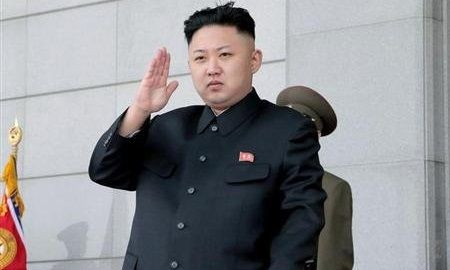Kim Jong Un Wins North Korean 'Election' With 100 Percent Of Votes

North Korean state media has reported that the nation's current leader, Kim Jong Un, has won election to the Supreme People’s Assembly -- by a landslide. By the biggest landslide possible, in fact: He got 100 percent of the votes.
According to Korean Central News Agency, the state-run mouthpiece for the Kim regime, Kim was "elected" among several other deputies to the highest legislative body in the country, in a "democratic" process of citizens voting at the polls.
The news is hardly shocking considering the history of the nation’s leaders. In the Democratic People's Republic of Korea, the Kim family has always ruled, starting with Kim Il Sung, noted as the father of the country, establishing it as a republic and creating the foundation for the nation's self-sufficiency ideals known as Juche. After his passing, the title of North Korea’s supreme leader went to his son, Kim Jong Il, until he died in December 2011 and his son took over.
But though the DPRK is a totalitarian, single-party government, it still follows some democratic procedures, in a manner of speaking. Elections, though a mere formality, occur around every five years. Kim’s victory was immediately announced by official media, stating that Kim had won his district, located on Mount Paektu, a mountain that carries great symbolism for North Koreans, without a single dissenting ballot. Announcements for the other spots have yet to be confirmed. Even in other districts, voting procedures are still meaningless, as the ballots for each district include only one name, and people can just vote yes or no.
“This is an expression of all the service personnel and people’s absolute support and profound trust in supreme leader Kim Jong Un as they single-mindedly remain loyal to him,” KCNA reported.
During the most recent elections, prior to the death of Kim Jong Il in 2011, 687 deputies were "elected" as part of the legislative group. North Koreans at least take advantage of the limited civil liberties that they do have and vote en masse: According to AP, North Korea consistently posts a 99 percent voter turnout for nationwide elections.
The announcement and selection of the new People’s Assembly will likely determine the direction in which Kim intends to lead the country, in the wake of the dramatic political shake-up that occurred late last year -- when he purged several high-ranking veteran politicians, including his own uncle, Jang Song Thaek, who was executed.
© Copyright IBTimes 2025. All rights reserved.






















